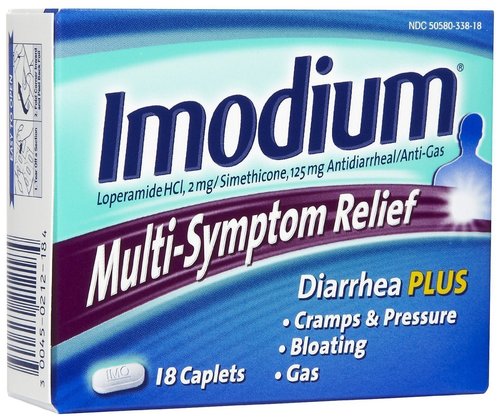Diarrhea Drug Involved in Growing Number of Overdoses
/By Pat Anson, PNN Editor
A little over a year ago, the Food and Drug Administration asked Johnson & Johnson and other drug makers to limit the number of anti-diarrhea pills they sell. FDA commissioner Scott Gottlieb, MD, said the “unprecedented and novel action” was needed because Imodium and other over-the-counter formulations of loperamide were being abused by opioid addicts.
A few of us guffawed at the news as another example of government regulation gone amuck.
But it turns out there is cause for concern.
Researchers at Rutgers University have documented that overdoses of loperamide have been steadily increasing in number and severity, and have even resulted in some deaths.
Their study, published in the journal Clinical Toxicology, found a growing number of people addicted to opioids who are using loperamide to prevent or self-treat withdrawal symptoms. Some are even taking massive doses to get a high similar to heroin, fentanyl or oxycodone.
The New Jersey Poison Control Center has reported several fatalities or near-fatalities from loperamide in the past 12 months.
“When used appropriately, loperamide is a safe and effective treatment for diarrhea – but when misused in large doses, it is more toxic to the heart than other opioids which are classified under federal policy as controlled dangerous substances,” said senior author Diane Calello, MD, executive director of New Jersey Poison Control at Rutgers New Jersey Medical School.
“Overdose deaths occur not because patients stop breathing, as with other opioids, but due to irregular heartbeat and cardiac arrest.”
The researchers reviewed toxicology cases in a national poison control center database from 2011 to 2016, and found a 91 percent increase in loperamide overdoses during that time period. In 2015 alone, there were 916 cases and two deaths.
Patients who misused loperamide were predominantly young Caucasian men and women. The majority used extremely high doses of loperamide, the equivalent of 50 to 100 two-milligram pills per day.
“Possible ways of restricting loperamide misuse include limiting the daily or monthly amount an individual could purchase, requiring retailers to keep personal information about customers, requiring photo identification for purchase and placing medication behind the counter,” Calello said. "Most importantly, consumers need to understand the very real danger of taking this medication in excessive doses."
Misuse of loperamide is concerning because it is readily available over-the-counter, undetectable in routine drug tests, and can be bought in large quantities online or in retail stores.
In 2017, the FDA added a warning label to loperamide products cautioning consumers not to ingest high doses. Some drug makers are now selling the anti-diarrhea pills in smaller packages and in blister packs that are harder to open.





